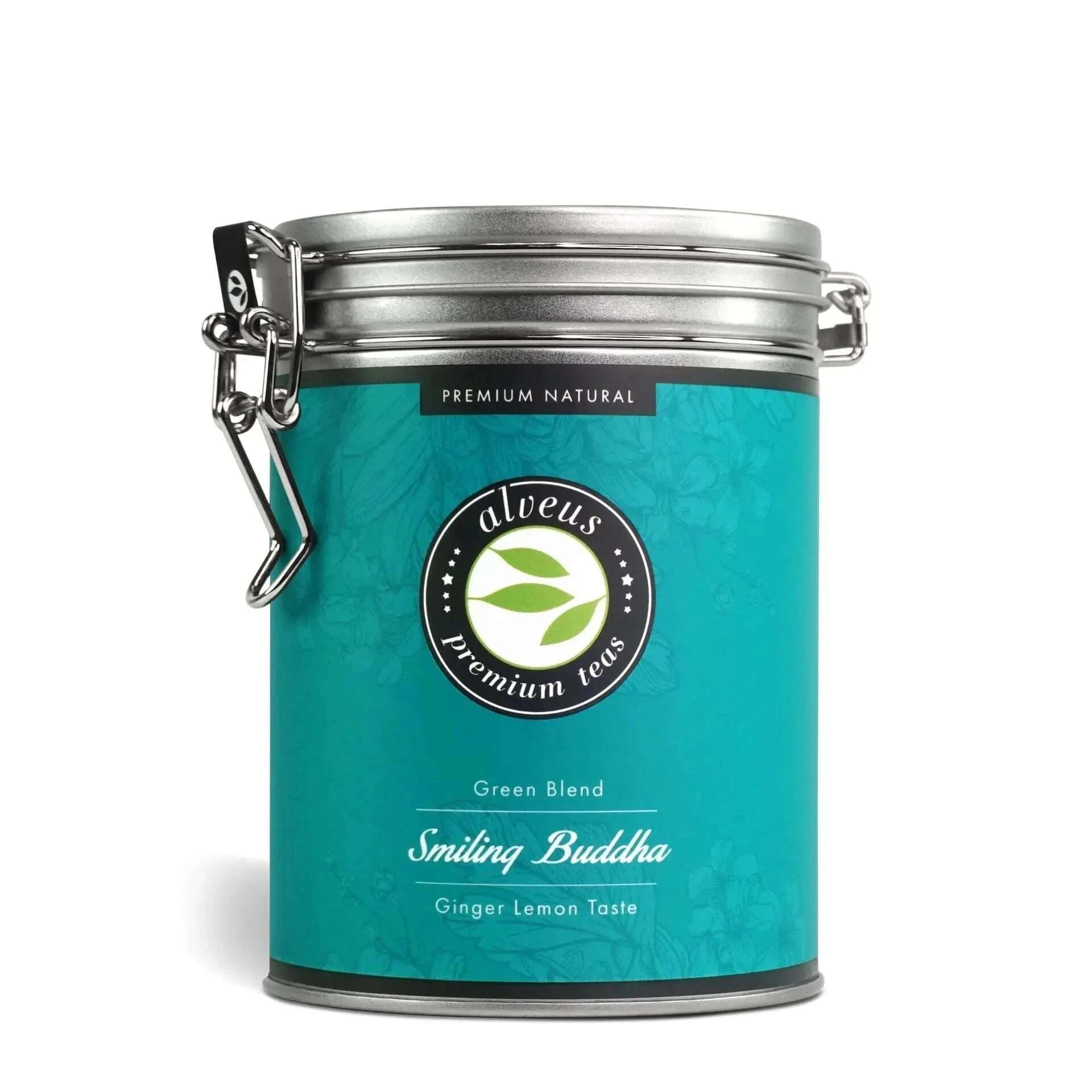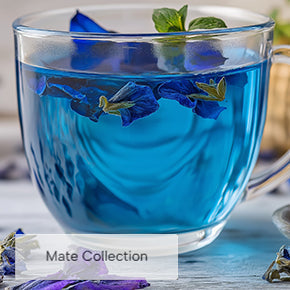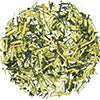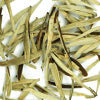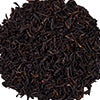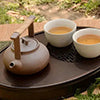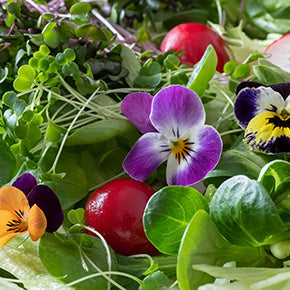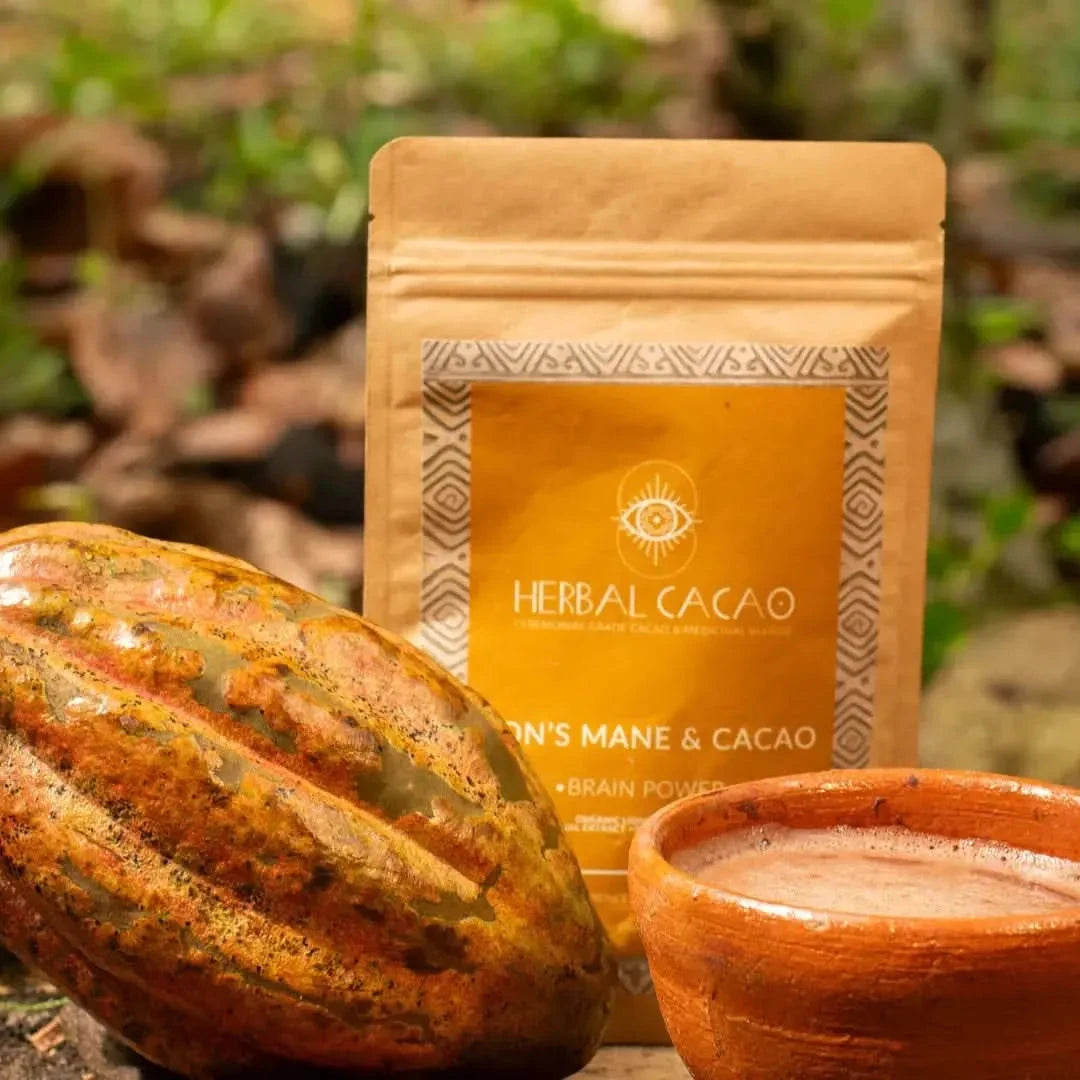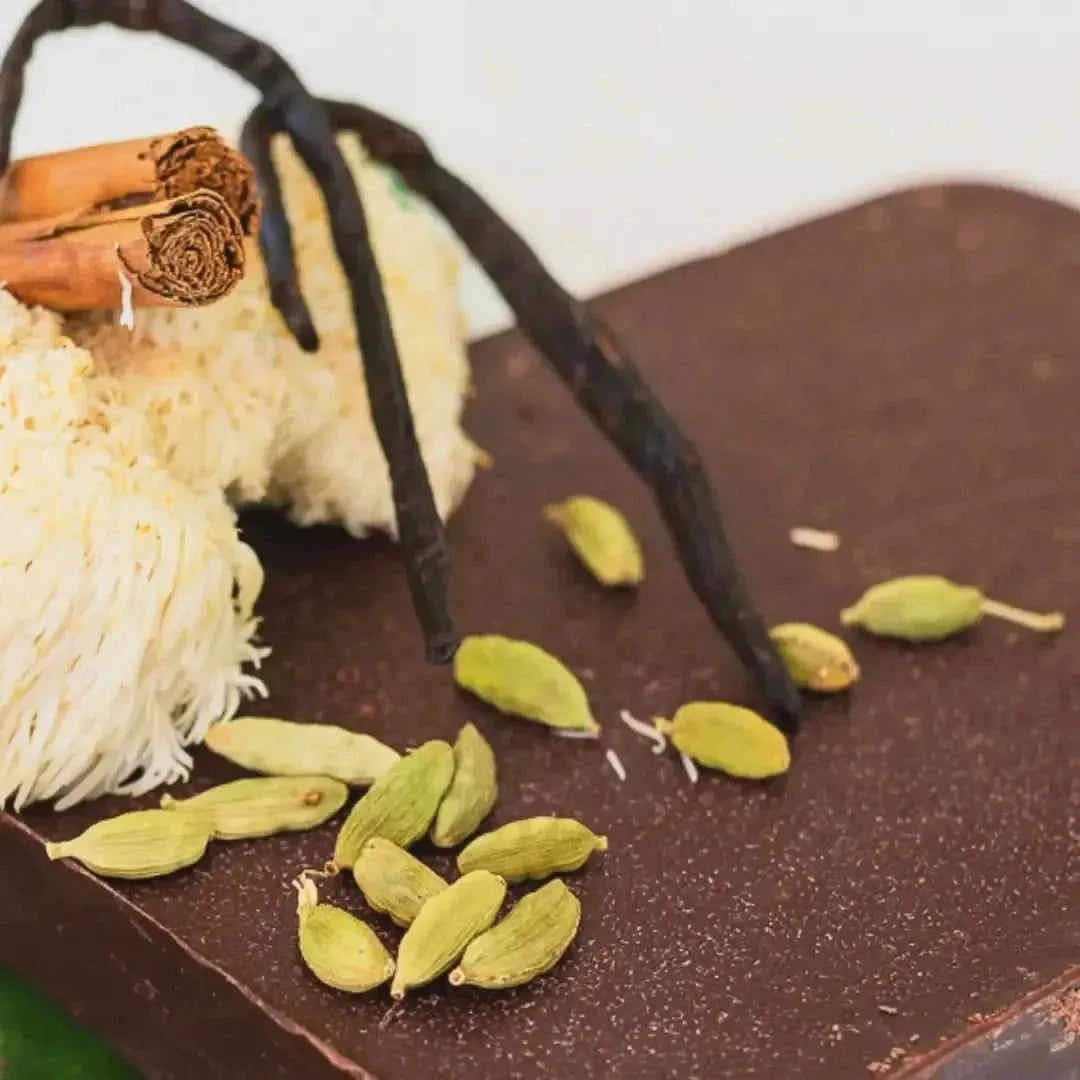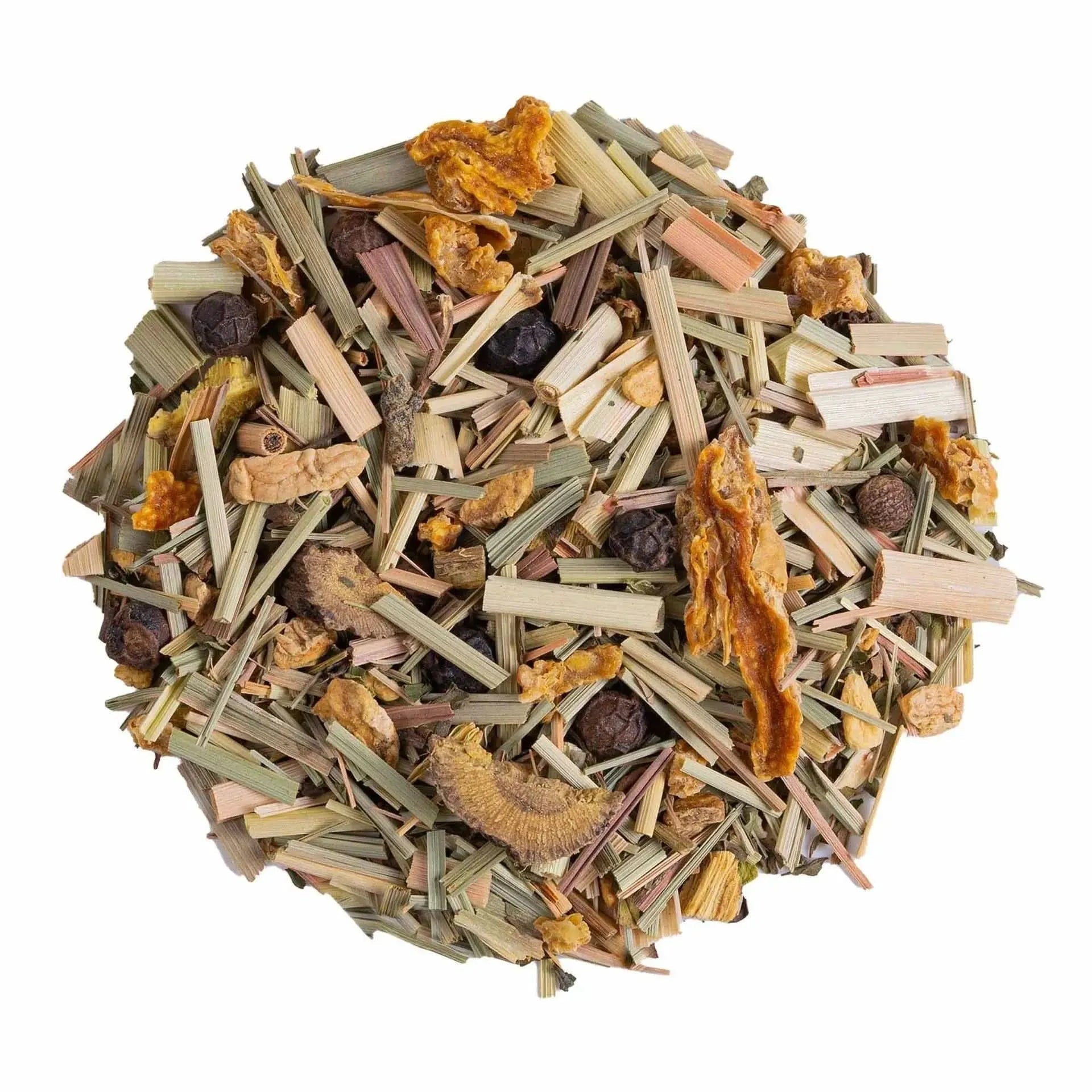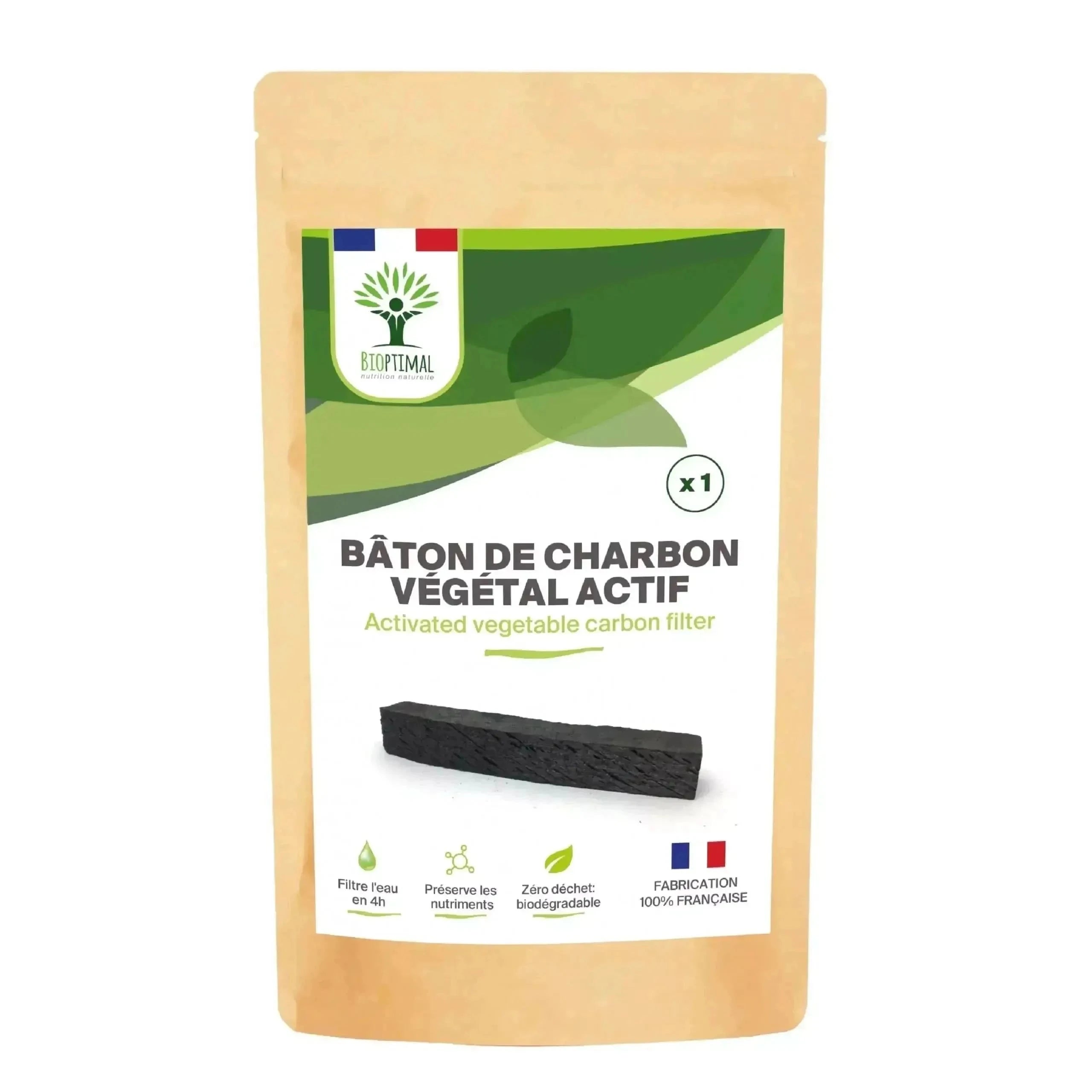Green Tea Smiling Buddha - Mindful Balanced Meditation Blend
Smiling Buddha is a harmonious green tea blend that offers a velvety texture and mild, yet complex flavor profile. This premium blend combines the light, grassy notes of Green Tea China Sencha (51%) with the zesty freshness of lemongrass, the warming spice of ginger, and subtle floral hints from marigolds.
The blend is carefully crafted to create a balanced taste experience, where the gentle spiciness of ginger root complements the fresh, fruity accents of lemongrass and lemon peels. This combination results in a tea that's both invigorating and soothing, making it an ideal choice for a positive start to the day or a refreshing afternoon pick-me-up.
Sourced through sustainable cultivation practices, Smiling Buddha reflects Alveus' commitment to quality and environmental stewardship. The natural flavoring ensures a consistent taste profile, while the inclusion of whole ingredients provides depth and authenticity to the blend.
Guarantee Safe Checkout
For an optimal flavor experience, use 12-15 grams of Smiling Buddha per liter of water. Steep for 2-3 minutes in water heated to 70-80°C (158-176°F). This lower temperature and shorter steeping time help preserve the delicate flavors of the green tea and prevent bitterness.
The resulting infusion offers a complex flavor profile that evolves with each sip. The light, grassy notes of the green tea form a perfect backdrop for the citrusy lemongrass, warming ginger, and subtle floral hints from the marigold. The lemon peels add a bright, zesty finish to the cup.
Smiling Buddha can be enjoyed hot for a comforting experience, perfect for morning meditation or a mindful afternoon break. It also makes an excellent iced tea, offering a refreshing and revitalizing beverage for warmer days. Consider adding a small amount of honey if desired, although the natural sweetness of the lemongrass and the complexity of flavors often make additional sweeteners unnecessary.
As you sip this tea, take a moment to appreciate the balance of flavors and the cultural heritage represented in each ingredient. Let the name "Smiling Buddha" inspire a sense of tranquility and positive energy as you enjoy your cup.
Green Tea China Sencha (51%), lemongrass, ginger, natural flavouring, lemon peels, marigold. Alveus premium blend with ingredients from sustainable cultivation and natural flavourings.
Key Components:
- Green Tea China Sencha (51%): Forms the base of the blend, providing a fresh, grassy flavor
- Lemongrass: Adds a citrusy and slightly sweet note
- Ginger: Contributes a warm, spicy element
- Lemon Peels: Enhance the citrus profile
- Marigold: Provides a subtle floral note and visual appeal
Smiling Buddha offers a range of potential health benefits, making it not just a delightful beverage but also a contributor to overall wellness:
- Green Tea China Sencha: Rich in antioxidants, particularly catechins like EGCG, which may help reduce the risk of heart disease, aid in weight loss, and provide anti-inflammatory benefits. The moderate caffeine content can help improve alertness and focus.
- Lemongrass: Known for its calming effects, lemongrass may help reduce stress and anxiety. It also has anti-inflammatory properties and can aid in digestion.
- Ginger: Possesses anti-inflammatory properties and is often used to alleviate nausea and digestive issues. It may also help reduce pain and inflammation in the body.
- Lemon Peels: Rich in vitamin C and flavonoids, which can help boost the immune system and provide additional antioxidant benefits.
- Marigold: Known for its anti-inflammatory and antimicrobial properties. When consumed as tea, it may provide a calming effect and potentially help soothe skin issues.
The combination of these ingredients creates a blend that not only tastes delightful but also offers a holistic approach to wellness, potentially supporting digestive health, stress reduction, and overall vitality.
Smiling Buddha brings together ingredients with rich cultural histories from around the world:
Green Tea China Sencha: Originating in China, green tea has a history spanning over 4,000 years. It was first introduced to Japan in the 12th century and has since become a staple in Japanese tea culture. Sencha, in particular, is a popular type of green tea in Japan, known for its light, refreshing taste. In many Asian cultures, green tea is associated with mindfulness, meditation, and overall well-being.
Lemongrass: Native to tropical regions of Asia, lemongrass has been used for centuries in traditional medicine and cooking. It is a common ingredient in Southeast Asian cuisine, particularly in Thai and Vietnamese dishes. In many cultures, lemongrass is valued not only for its citrusy flavor but also for its perceived ability to cleanse and rejuvenate the body and spirit.
Ginger: With a history of use spanning over 3,000 years, ginger has been a staple in traditional Chinese medicine and Indian Ayurvedic practices. It was introduced to Europe by the Romans and has since become a global ingredient, valued for both its culinary and medicinal properties. In many Asian cultures, ginger is considered a warming ingredient that promotes balance in the body.
Lemon Peels: Lemons were introduced to Europe by Arab traders in the 1st century AD and have since been used in various culinary and medicinal applications worldwide. In many Mediterranean cultures, lemons are symbols of purification and friendship. The use of lemon peels reflects a waste-not philosophy common in many traditional cuisines.
Marigold: Marigold flowers have been used for centuries in traditional medicine, particularly in Indian Ayurveda and Chinese medicine. In Mexican culture, marigolds (known as cempasúchil) play a significant role in Day of the Dead celebrations. In India, marigolds are often used in religious ceremonies and are considered sacred flowers.
The name "Smiling Buddha" itself evokes the image of contentment and inner peace associated with Buddhist philosophy, suggesting that this blend is designed to bring a sense of calm and positivity to the drinker.

